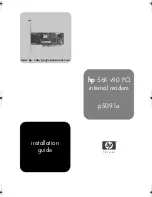
2010-10-26
Network Design and Engineering Guide
49
General Carrier Design
Network Traffic Estimation
Figure 2-31
Traffic Calculation Example - Carrier Config. with Network Traffic
For the two carrier solution the 512 kbps real-time bandwidth must be allocated to carrier 2 be-
cause the small sites (station type 4) are all assigned to this carrier. For the three carrier solu-
tion the small sites are divided in two subgroups, one is using carrier 2 and the other carrier 3.
For that reason the real-time bandwidth was also split, 256 kbps are now assigned to carrier 2
and 3.
Note that this choice reduces the flexibility of bandwidth assignment: Whereas in the single and
two carrier solution any 2 small sites may support the video session, for the three carrier solu-
tion the situation is different: If one video session is already active in the first subgroup, the
second video session can only be established to a station in the second subgroup. If this re-
striction is not acceptable, the data rate requirement for both carrier 2 and 3 would be increased
by 256 kbps. In that situation it may be more optimal to leave all small sites on one common
carrier even if this leads to larger differences in data rates.
The last worksheet “TDMA Calc Input” is used to simplify TDMA structure optimization with the
“TDMA Calculator” tool and will therefore be discussed together with this tool in chapter 2.7.
2.4.2
Limitations of the Traffic Estimation Approach
The network traffic estimation procedure outlined in the previous section works well in most
scenarios. However, there are some limitations which the network designer should be aware
of to prevent wrong decisions specifically concerning the carrier design. These limitations will
be important especially if the traffic flows are asymmetric like e.g. in the case of a pure star net-
work.
The assumption our traffic estimation is based on is that each station has to share the available
bandwidth in receive direction with other stations assigned to the same carrier. There is no spe-
cific limitation for the transmit direction because a station having a small carrier as home chan-
nelone may still transmit on another carrier with much higher bandwidth. As for the whole
network the amount of received and transmitted data must be identical there is no need to es-
Summary of Contents for SKYWAN IDU 1070
Page 1: ......
Page 2: ......
Page 6: ...Page intentionally left blank 2 Network Design and Engineering Guide 2010 10 26 ...
Page 12: ...Page intentionally left blank 8 Network Design and Engineering Guide 2010 10 26 ...
Page 16: ...Page intentionally left blank 12 Network Design and Engineering Guide 2010 10 26 ...
Page 22: ...Page intentionally left blank 18 Network Design and Engineering Guide 2010 10 26 ...
Page 76: ...Page intentionally left blank 72 Network Design and Engineering Guide 2010 10 26 ...
Page 134: ...Page intentionally left blank 130 Network Design and Engineering Guide 2010 10 26 ...
Page 138: ...Page intentionally left blank 134 Network Design and Engineering Guide 2010 10 26 ...
Page 144: ...Page intentionally left blank 140 Network Design and Engineering Guide 2010 10 26 ...
Page 153: ......
Page 154: ...www ndsatcom com ...















































